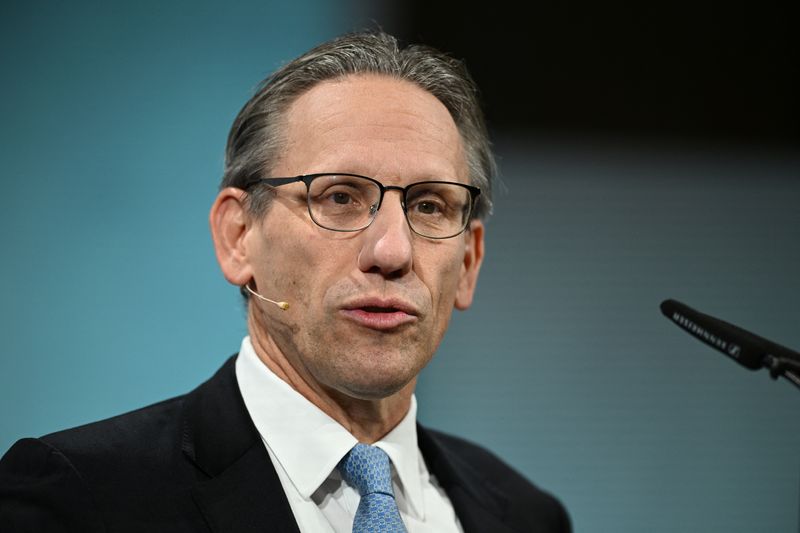BERLIN (Reuters) -New German Finance Minister Joerg Kukies dampened expectations {that a} reform of the nation’s spending cap, often called the debt brake, might result in extra leeway within the federal funds in an interview with the Handelsblatt newspaper revealed on Friday.
“You have to look at what is realistic and what there could be a political consensus on,” Kukies instructed Handelsblatt, including that “in my view, this would be a moderate, targeted reform.”
German political events have bristled over the spending guidelines, which limits the nation’s public deficit to 0.35% of gross home product, viewing it as a hindrance at a time when the Ukraine battle has held again development in Europe’s largest economic system.
A dispute over spending led to the collapse of Germany’s authorities earlier this month, after Chancellor Olaf Scholz fired Kukies’ predecessor, Christian Lindner, ending a coalition between Scholz’s SPD, Lindner’s pro-market FDP and the Greens.
Scholz stated on Friday a “moderate reform” of the debt brake is required, as extra expenditures for defence shouldn’t come at the price of investments or welfare applications.
In 2028 a complete of 80 billion euros will probably be wanted to adjust to the NATO goal of spending 2% of GDP on defence — virtually 30 billion greater than within the 2025 draft funds which proposes defence spending of 53 billion euros.
“We won’t get rid of the debt brake. We don’t even want to get rid of it. But we want it to be more manageable,” stated Scholz at an occasion organised by SPD native politicians in Berlin.
The fundamental precept of the debt brake is appropriate, stated Kukies, because it ensures budgetary self-discipline throughout the good years and permits enough monetary leeway throughout occasions of crises.
Nonetheless, it is sensible to take a look at the varied proposals and consider what is sensible to have the ability to finance the required long-term funding wants, added Kukies.

And “even if we did not have a debt brake, we would still be subject to the European debt rules,” added Kukies.
“These also require prioritisation because they limit the increase in government spending and require a solid budget policy,” Kukies stated, including that he would marketing campaign for Germany to be given extra time to submit its spending plans underneath the brand new EU debt guidelines with a view to elections deliberate for February.




